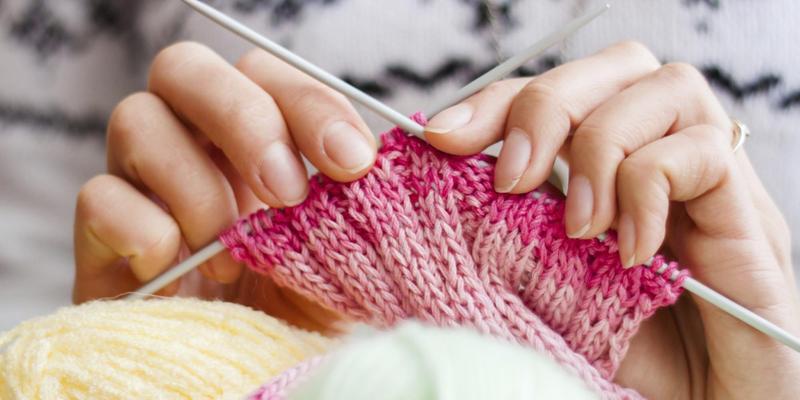This Hobby Boosts Your Memory and Mental Focus, and Prevents Alzheimer's and Depression
This Hobby Boosts Your Memory and Mental Focus, and Prevents Alzheimer's and Depression
Sewing, knitting and needlepoint has been for centuries a necessary skill (for women in particular). In years past, and I suppose in many areas of the world even today, most children grow up in homemade clothes and blankets. In many cases the quality and artistry of these homemade textiles are amazing. During the 19th century, American girls would create “samples” to demonstrate their skill and artistry. Many of these have survived the test of time and we can still see them today. But did you know that there are many health benefits of knitting?
By modern standards, they are amazing demonstrations of skill that few ten year-olds today could replicate… in any activity. Unfortunately, children today (and girls in this case) no longer train their brain for such tedious and artistic work. However, recent studies and observations highlight the mental and physical benefits of knitting (and other needle work), amongst older individuals. Senior citizens, as it turns out, benefit a lot from knitting. There are both physical and mental benefits that every aging individual should be looking for.
Exercising Cerebral Hemispheres: The simple act of passing the thread through the needle requires coordination and dexterity. Also, the artistic vision, the mental work required to follow patterns and directions, all contribute to greater mental sharpness, especially amongst the aging population who are susceptible to various forms of dementia, Alzheimer’s and Parkinson’s.
Reducing Stress: Whether you are alone or with friends (many people meet in parks and each other’s homes to knit and sew together) knitting is a great way to reduce stress. The rhythmic movements, the mental preoccupation all have a calming effect. Also, it can be done while talking or even riding the bus. This simple manual activity can open the door to a more calm and serene day.
Improving manual dexterity: Teaching kids to knit and sew will help develop their small muscle movements and dexterity. Older individuals often suffer from arthritis, carpal tunnel syndrome and other motor movement issues. The repetitive and generally low impact of knitting can provide both neurological exercise (as our motor movement neurons fire) and physical exercise as our fingers move. As little as 1 hour per day can be enough movement to generate increased circulation in your fingers and reduce pain.
Improved self-esteem: As individuals age, they tend to lose their sense of self-worth. When you knit, you actually make something useful for others. It is more than just a hobby as you can see the fruits of your labors enjoyed and used by others. Also, as you get better in your craft, a sense of accomplishment can be obtained for the artistic value and mental accomplishment. For older individuals, high self-esteem can mean the difference between being happy and not.
As you can see, knitting a great way to stay sharp in your older years. It is affordable and more than just a hobby as you make useful goods for others. Even better, you can do this almost anywhere! If you or a loved one is aging, consider taking up knitting as you can benefit both mentally and physically!
Be the first to post a message!
